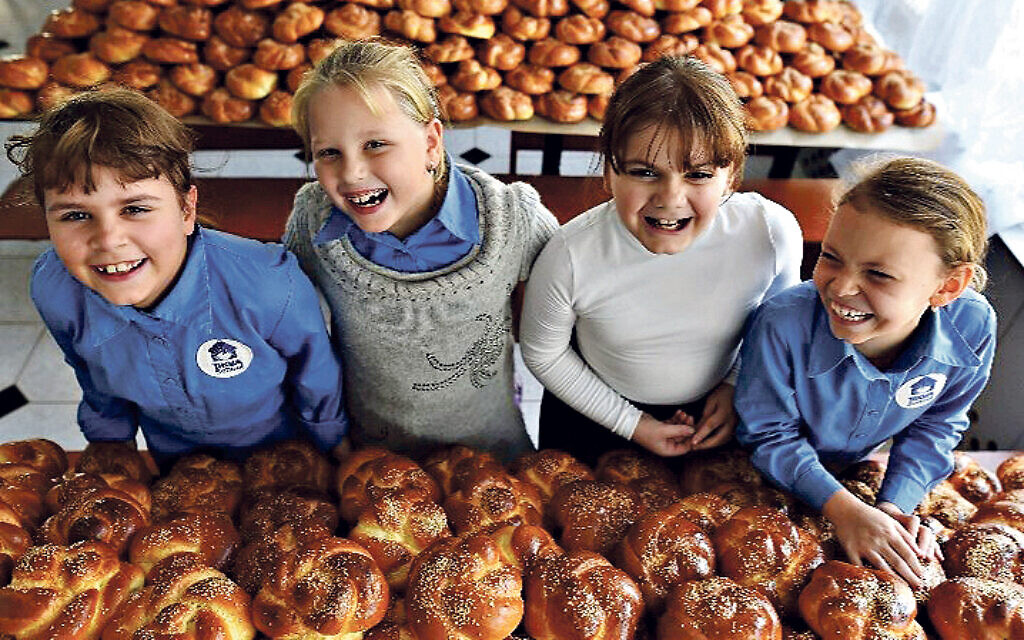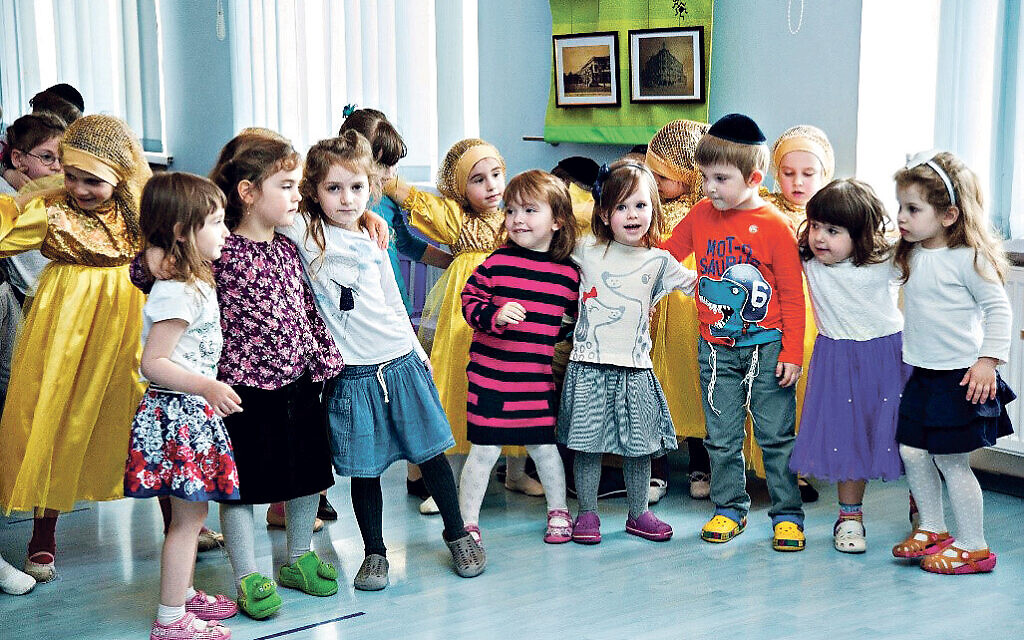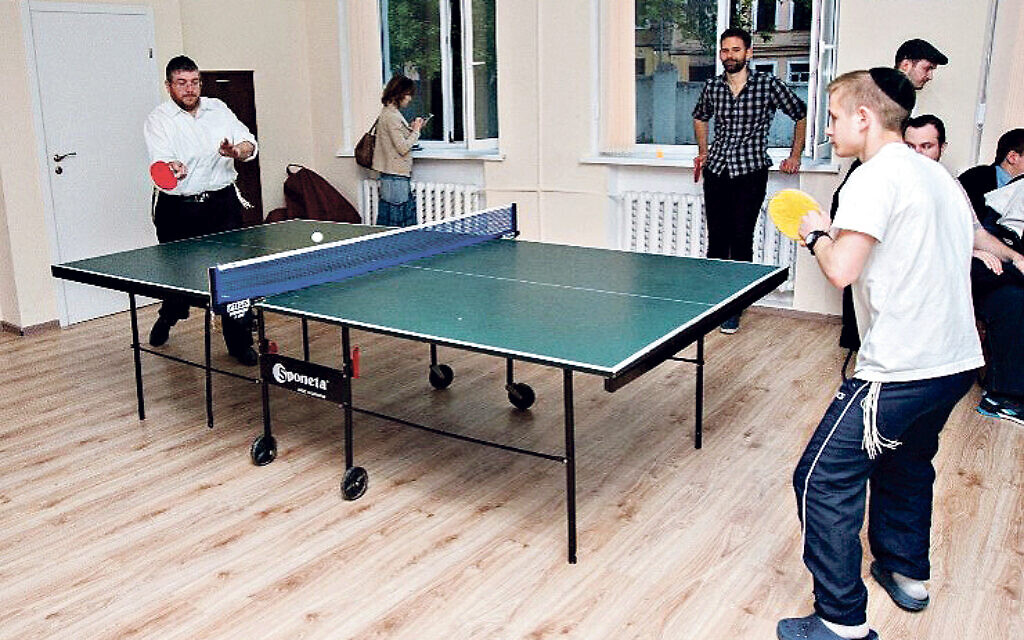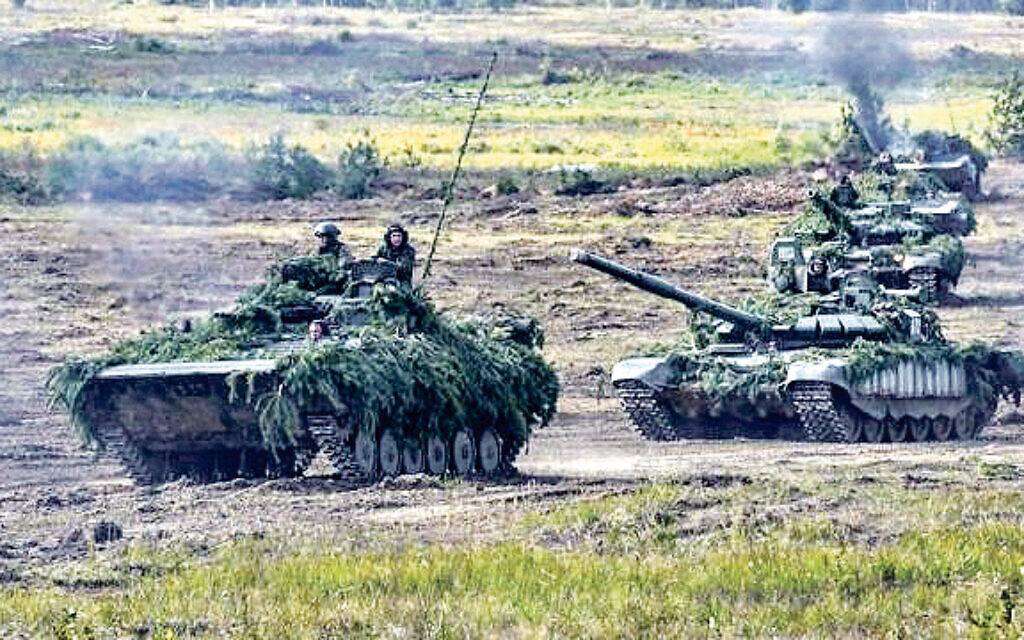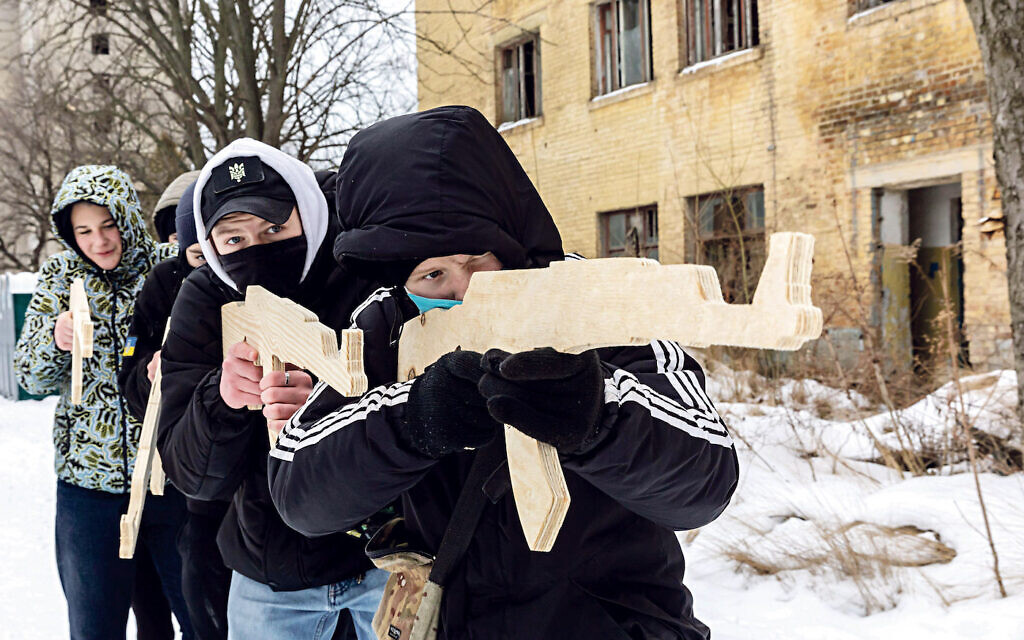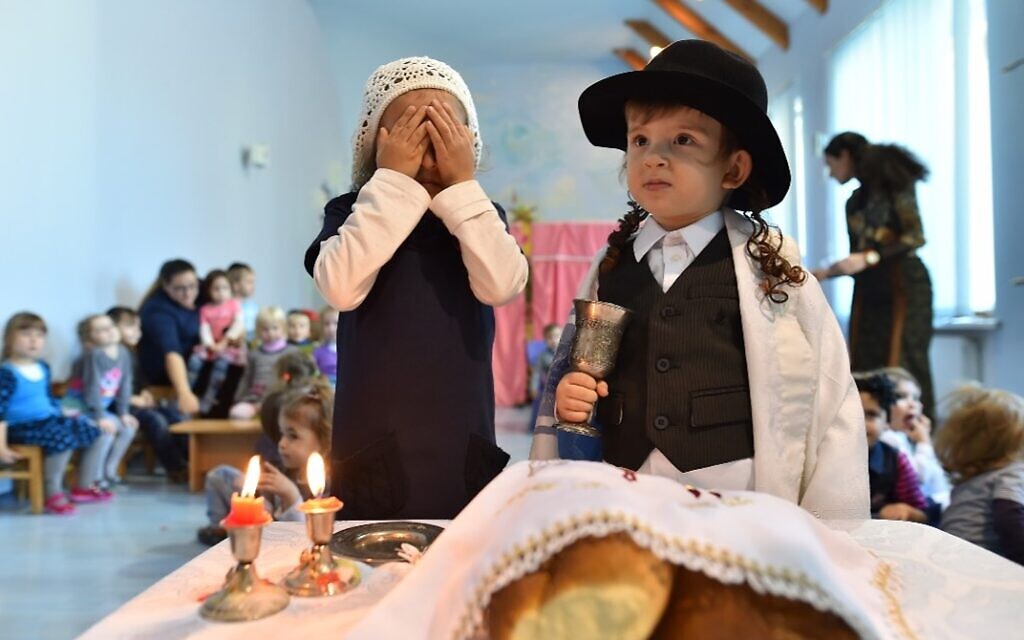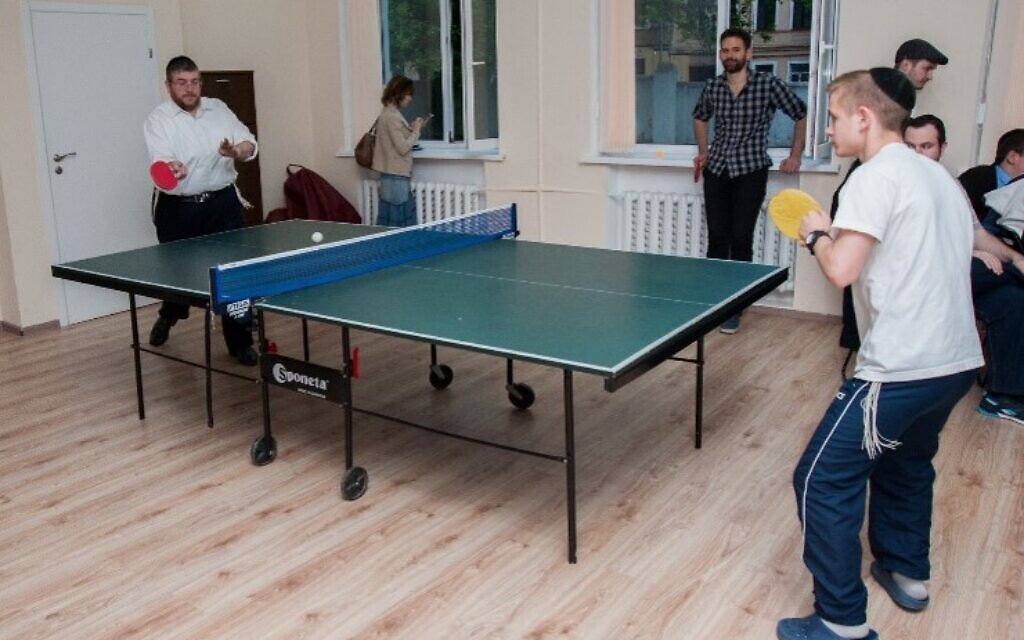‘Operation Exodus’ for Ukraine’s Jews: ‘The stakes are high. We must be ready’
EXCLUSIVE: Contingency plans in place to evacuate thousands. Charities in Ukraine are hoping for the best but braced for the worst
Jewish diaspora charities from the UK and US are working with Israeli security teams on plans to evacuate Ukrainian Jews from the country in the event of war with Russia.
They have mobilised as the UK prepares to deploy Royal Marines, RAF Typhoons and Royal Navy warships to eastern Europe, with the United States sending 3,000 troops.
Circling Ukraine are more than 100,000 heavily armed Russian troops, roughly 70 percent of an invasion force according to US intelligence, whose dire assessments have left Jewish organisations working in the country preparing for the worst.
Get The Jewish News Daily Edition by email and never miss our top stories Free Sign Up
While no organisation would confirm it publicly, Jewish News understands from several sources that evacuation details for thousands of Ukrainian Jews have already been worked out.
It is understood that plans include specific cities, age groups, modes of transport, routes and final destinations, which include both European countries and Israel.
We are not publishing any details of the proposed operation in order to preserve the integrity of the plans.
There are more than a dozen Jewish charities mainly from the US and UK currently operating in Ukraine, whose Jewish population has been estimated at up to 200,000.
Some, such as the American Jewish Joint Distribution Committee (JDC), work in both Ukraine and Russia. In 2020, it spent £47 million on aid in Ukraine, where it says it supports 40,000 Jews, while also spending £50 million on Jews in Russia.
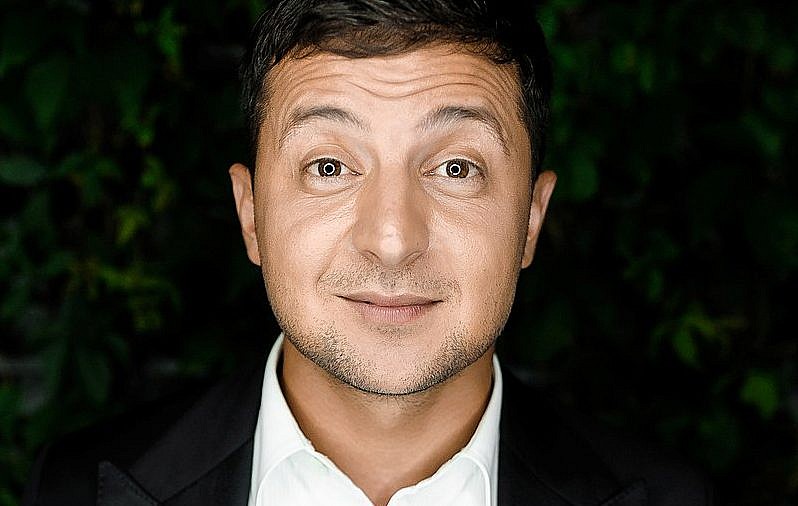
The JDC was behind the 1991 operation to airlift 14,000 Ethiopian Jews out to Israel, instituting a “silent call system” and coordinating transport to the planes, while in 2014 it supported Jews fleeing military conflict in Luhansk in eastern Ukraine, helping them to settle in Kharkiv, a city close to the Russian border.
“We rescue Jews in danger,” the JDC said. “We have the reach, the relationships, and the resources to act. Out of a deep commitment to save Jewish lives, we’ve launched numerous daring operations into crisis zones.
“When there are threats to Jews or Jewish life today, we’re there with boots on the ground and expertise to be a lifeline or take them out of harm’s way. For more than a century, we have been the global Jewish [emergency service] 911.”
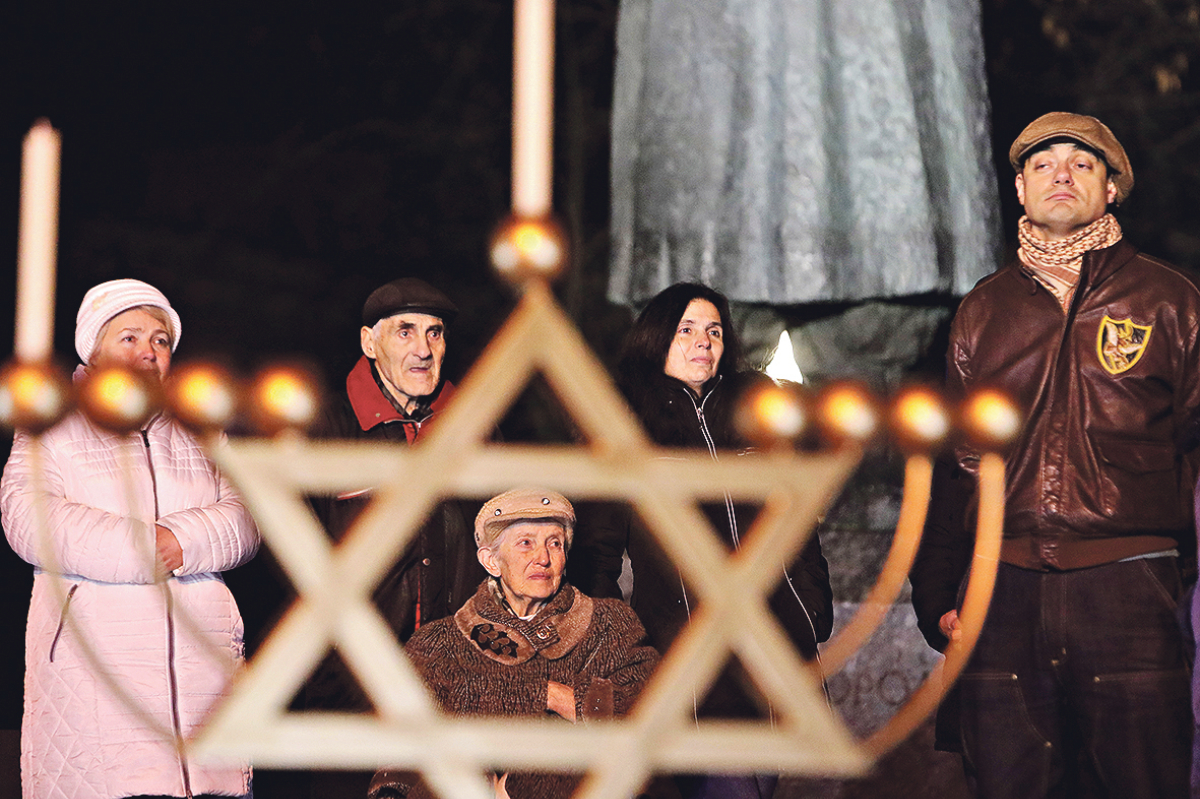
Pressed on Ukraine this week, the charity would only point to an old press statement from 25 January about its work with partners “to ensure the ongoing wellbeing and safety of our clients and staff and to prepare for emerging needs”.
World Jewish Relief (WJR), based in London, works with JDC. It supports about 8,000 often poor and elderly Ukrainian Jews, some of them Holocaust survivors, through a network of local partner organisations, with things like home-help and pension top-ups.
“We also support hundreds living in Russia and in separatist-controlled Ukraine, such as Donetsk,” said Paul Anticoni, WJR chief executive. “We need to continue to access them, so must remain apolitical in the statements we make.”
He told Jewish News: “The stakes are high. The consequences of any action would be horrific. It fills me with absolute horror what conflict here would bring, especially to a community we know so well. But we need to be prepared and ready. In 2014 we had to scale up.”
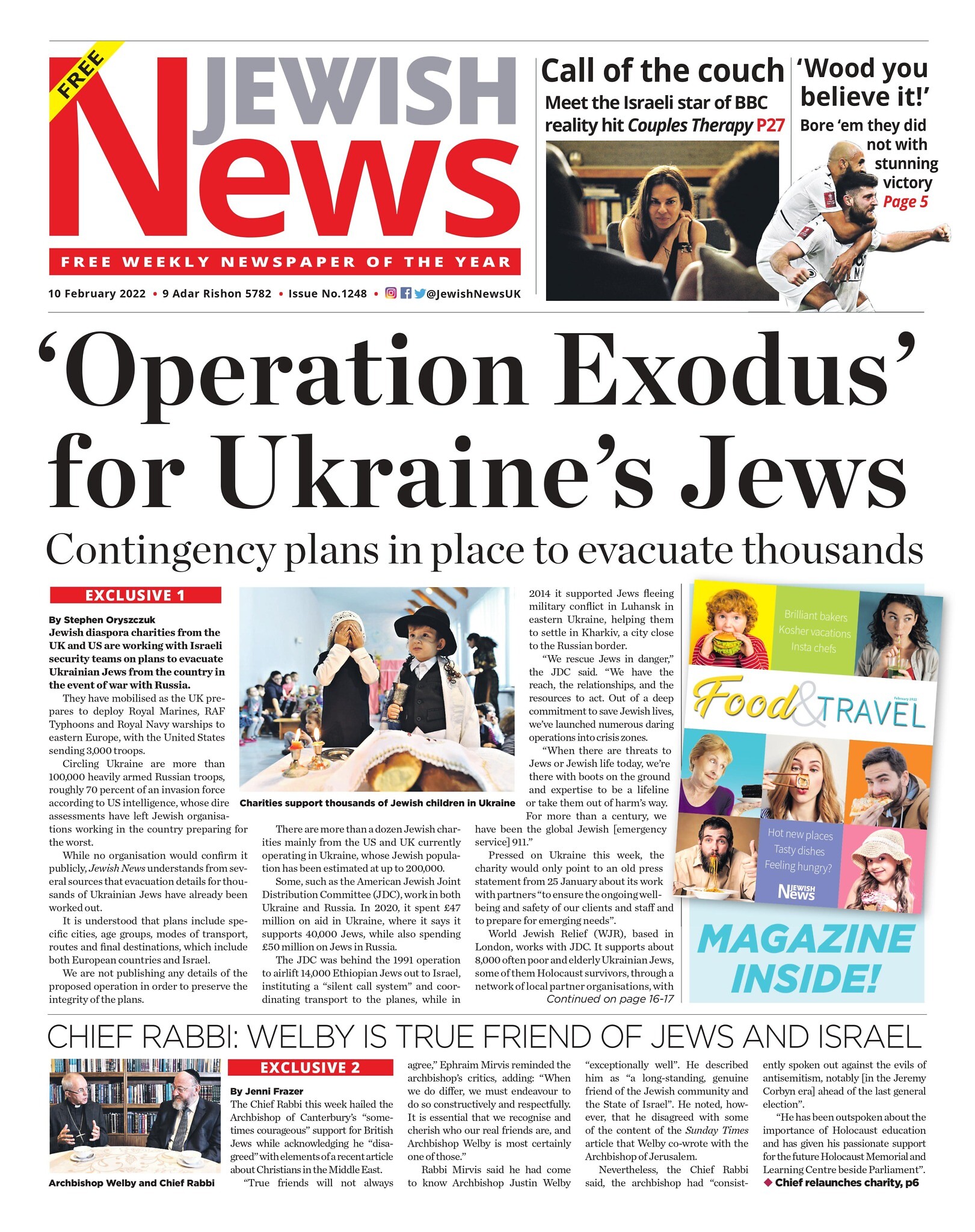
Eight years ago, fighting intensified between Ukrainian troops and Russian-backed separatists in the east and the southern peninsula of Crimea. It claimed 14,000 lives and led to WJR evacuating scores of Ukrainian Jews from the city of Mariupol, supporting almost 900 internally displaced individuals and providing relief and aid including food and hygiene kits to thousands of others.
Other Jewish charities working in Ukraine include Chabad, ORT and the American Jewish Congress (AJC), whose president Jack Rosen told Jewish News that the impact of war on Ukraine’s Jewish population would probably follow any fighting.
“The Jewish community will likely pick up and go to Israel,” he said. “If there’s a war or if Russia takes over chunks of Ukraine, many will want to lead their families to safety. As Jews, we have enough problems in the world, but if there’s one problem we solved, it’s that we all have a place to go – Israel.”
A property tycoon with business ties to Ukrainian Jewish billionaire Mikhail Fridman, Rosen said the AJC “could assist, if necessary, for them [Ukrainian Jews] to flee their cities or the country,” but added that “Israel of course would lead in that effort – and they’re prepared to do that.”
Another charity in Ukraine is Tikva, which works in Odesa running children’s homes for 300, a school for 700, a mikveh, a kosher restaurant, a Jewish university, a kollel [rabbinic institute], and an elderly support programme.
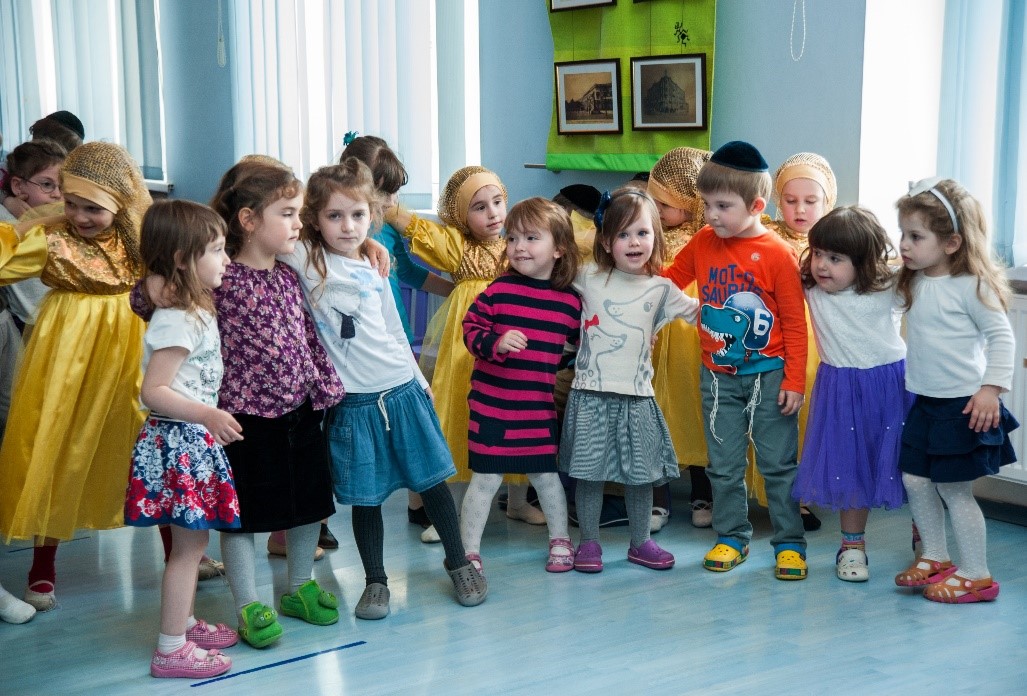
Karen Bodenstein of Tikva UK, said: “Based on the information we’ve received we feel that at present the likelihood of war [between Ukraine and Russia] is about 20-25 percent. But that doesn’t mean that there’s not going to be civil unrest.”
As fighting in the streets erupted in 2014, including outside the Tikva synagogue, the charity had to evacuate its hundreds of Jewish children to homes in the country and station 24-hour security on all its buildings. As tension builds again, people were now “incredibly nervous”, she said.
“They don’t know what to do and they’re turning to us for answers. The elderly are particularly nervous because they’ve experienced Russian persecution before, the children less so because they don’t really understand it. We worry for the safety of our children and a community we’ve known for 25 years.”

Recalling the 2014 children’s evacuation, she said: “That was stressful for them, but we did everything in our power to make it more like a summer camp. The biggest issue for us was the cost. Today, I’m more worried about civil unrest than I am about war.”
Asked about any resumption in fighting, she wouldn’t be drawn on what-if scenarios, but said: “There’s a lot going on. We do have a Plan B.”
Michael Mirilashvili, billionaire Russian-Israeli president of the Euro-Asian Jewish Congress (EAJC), told Jewish News that in the context of any Ukraine-Russia conflict, “the ability of emigration to Israel for Jewish populations must be guaranteed at any time”.
Although Israel has tried to stay neutral, Mirilashvili said it might get dragged in, and war would have “destructive consequences for the entire region and potentially affect allies of the two countries, including Israel”.
Others agree. Two weeks ago, when Russian fighter jets conducted an exercise over the Golan Heights along Israel’s border with Syria, UK-Israel think-tank BICOM said it could be “an effort to use Israel to persuade the US not to interfere”.
At a local level, several charities told Jewish News privately that they were taking steps to prepare for the worst while hoping for the best.
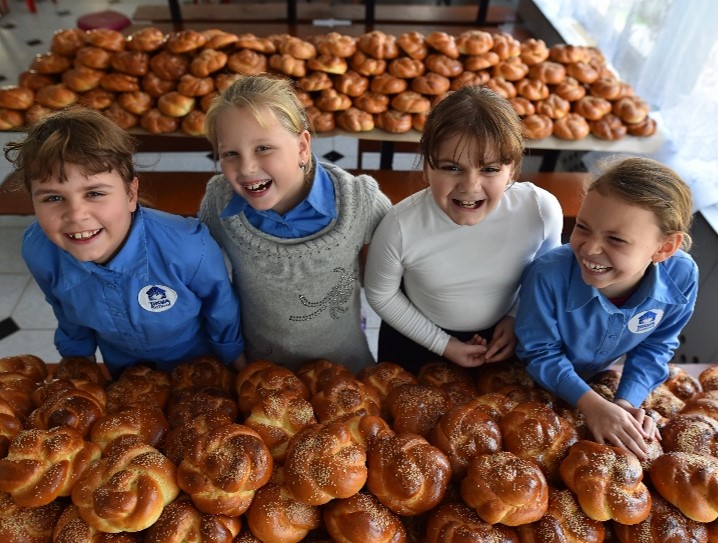
“We want our local partners to be prepared, with stocks and funds, but it’s almost impossible to prepare because the scenarios are so varied,” said Anticoni. “If nothing happens, if the Russian military stays on the borders, Ukraine continues in a state of worry and semi-paralysis. It’s psychologically draining on our client group.”
Asked about evacuation and emigration in the event of upheaval, Anticoni was hesitant. “People always say, ‘Surely, this is the time for people to leave and go to Israel.’ But this is a largely older demographic who are passionate about their country. They strongly identify as Jewish but have less links with Israel.
“Those who’ve wanted to leave have done so, and those who’ve wanted to stay have stayed. But who knows what might happen to trigger a different decision.”
How many Jews in Ukraine?
JDC – the American Jewish Joint Distribution Committee, the largest international Jewish organisation operating in Ukraine – estimates that there are 200,000 Jews living in the country and says it supports more than 40,000 of them.
However, the London-based Institute of Jewish Policy Research thinks that by 2020 only 45,000 Jews remained in Ukraine. This represents an incredible exodus, given that there were 875,000 in 1970 and 104,000 in 2001.

Following the dissolution of the Soviet Union, 80 percent of Ukraine’s Jews were Russian speakers and “the Jewish population diminished more sharply in the western regions of the country, where the share of Russians was relatively lower”.
When Russia annexed Crimea in 2014, a special census showed there were 3,374 Jews on the peninsula. This meant that Crimea’s Jewish population had fallen by 40 percent in 13 years, since the last census in 2001.
Many Ukrainian Jews have left for Israel and the pace of pre-pandemic emigration was as high as it has ever been, with 32,247 new Ukrainian Jewish immigrants to Israel between 2015 and 2019. Of these, about 70 percent were aged 45 or over.
Can Jewish diplomacy avert war?
For weeks, journalists have heard rumours that Jewish figures with ties to President Vladimir Putin have been intervening to avert war in Ukraine. Last week Michael Mirilashvili, the Russian-Israeli president of the Euro-Asian Jewish Congress (EAJC), came close to confirming it to Jewish News.
“We call for negotiations and hope the issue will be resolved diplomatically, that is why EAJC leaders offered their mediation in the negotiation process,” he said. “Many of us were born in Russia or Ukraine and cannot remain indifferent.”
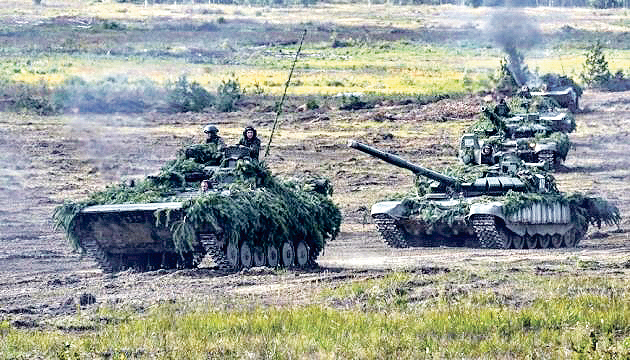
Its leadership is indeed a ‘who’s who’ of Jewish industrialists – either multi-millionaires or billionaires – with business interests straddling Russia, Ukraine and Israel, so they may be well placed to act.
Mirilashvili, head of Israel’s 24th wealthiest family, is president of St Petersburg’s Jewish community, while EAJC chair Aaron Frenkel, president of Limmud FSU, founded Russian Airlines.
EAJC first vice-presidents include Temur Ben Yehuda, chair of the Israel-Russia Business Council; Vadym Rabinovich, head of the Ukraine-Israel Chamber of Commerce; and Boris Lozhkin, president of the Jewish Federation of Ukraine.
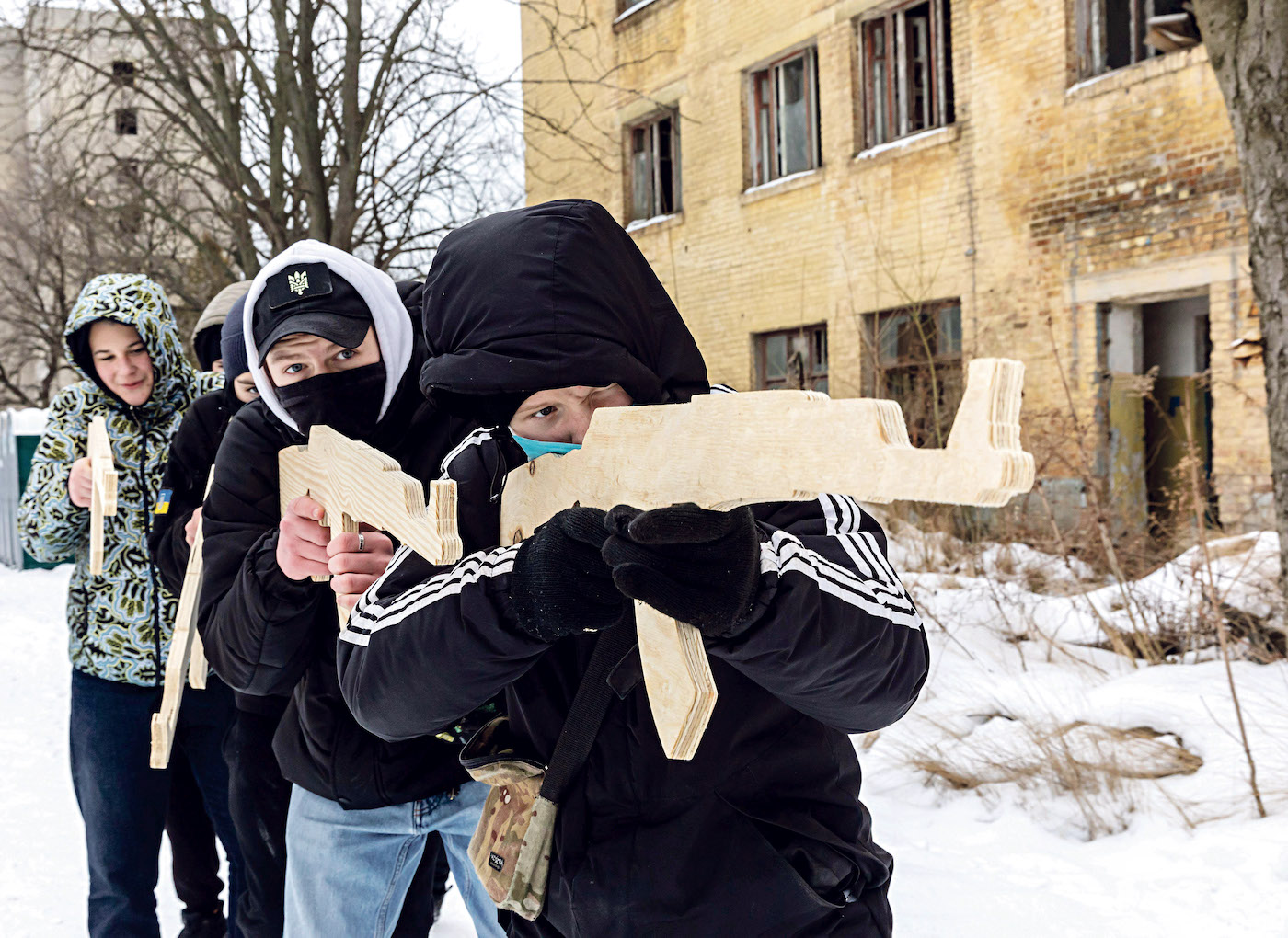
Mirilashvili said relations with both Russia and Ukraine were “strategically important for Israel”, adding: “According to Israel’s foreign ministry, a free trade agreement with the Eurasian Economic Union is being prepared. Last year Israel signed a similar agreement with Ukraine.”
Moreover, he said: “Thousands of Jews from Russia and Ukraine emigrate to Israel every year… Some of the largest Jewish communities in the world live there.” He said Jewish communities and organisations in Russia and Ukraine maintained warm relations with each other, adding: “In any case, the ability of emigration to Israel for Jewish populations must be guaranteed at any time.”
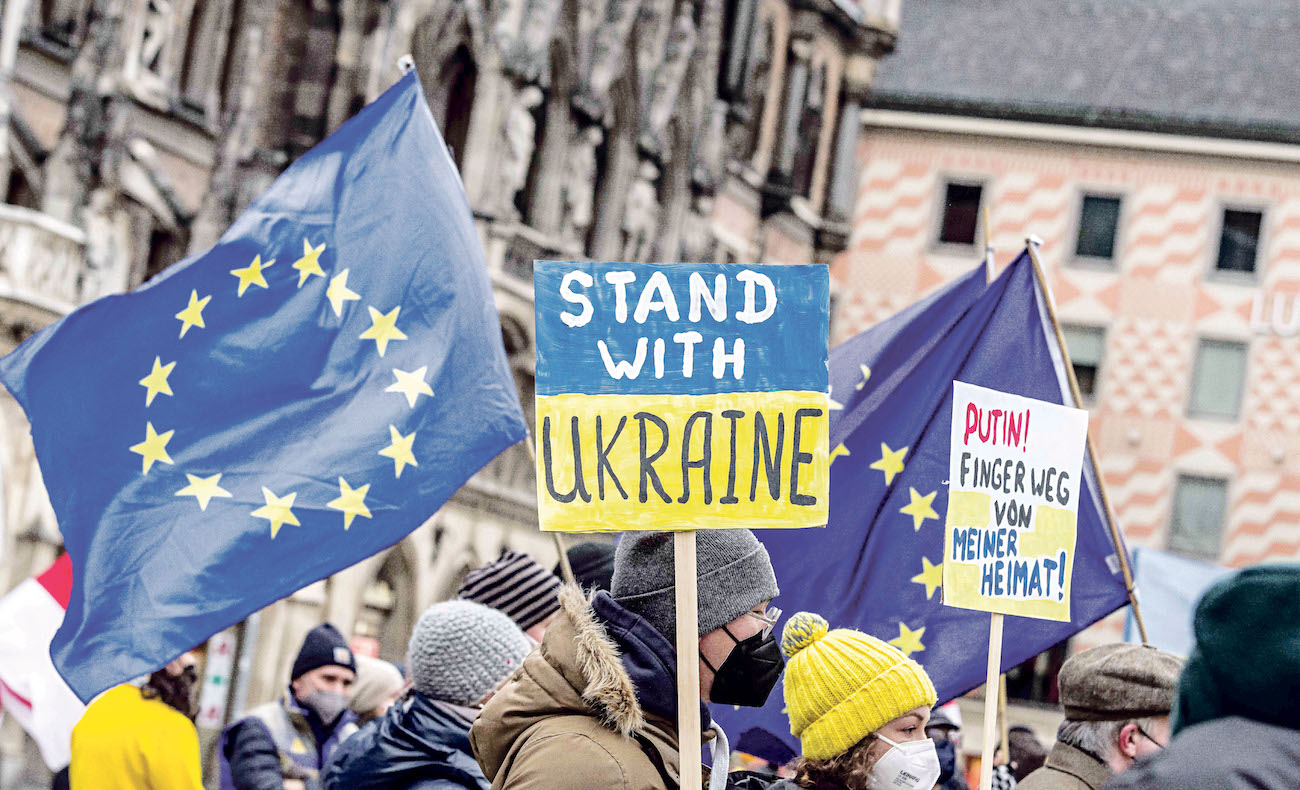
The cradle of Hasidism and Zionism
Ukraine is described as “the cradle of Hasidism, Yiddish and modern Hebrew literature, and Zionism”, with the latter increasingly acknowledged.
In 1882, Odesa physician Leon Pinsker – who had earlier promoted the integration of Jews into Russian society – published his influential pamphlet Autoemancipation, in which he urged Jews to establish a state of their own.
He founded the Hibbat Zion movement, which paved the way for the Zionist movement, and in 1882–84 some 60 members of the Kharkiv organisation Bilu moved to Palestine, inaugurating the first mass resettlement of the Jews in the Land of Israel.
The founder of ‘spiritual’ Zionism, Ahad Ha’am, was a native of Kyiv. From 1897, Zionist circles were established in Kyiv, Kharkiv, Odesa and other cities, making Ukraine a centre of organised Zionism. The Tsarist government was initially indifferent but eventually banned the Zionists.
In 1903, the future poet laureate of the Zionist movement Hayim Nahman Bialik published his poem In the City of Slaughter after visiting the site of the Kishinev pogrom.
Throughout the early 20th century, Ukrainian and Jewish political parties (including socialist, Bundist, and Zionist) in the Russian Empire worked together in both legal and underground political activity. This led to Jews being well represented in the Rada (Ukrainian revolutionary parliament). Yiddish was even recognised as an official language, appearing alongside Ukrainian, Polish, and Russian on Ukrainian banknotes.
In 1911, the Zionist leader Vladimir Jabotinsky wrote publicly that the Ukrainian national idea and Zionists had the same enemies and goals, and that Jews “must turn their attention toward Ukrainians and not be Russifiers”.

It worked both ways. Ivan Franko, the Ukrainian writer and politician, drew parallels between aspirations for a Jewish homeland and the Ukrainian desire for independence, and suggested granting Jews large-scale political rights to the extent of recognising them as a separate nation. He is said to have met Theodor Herzl in Vienna in 1893, which inspired him to write an enthusiastic review of Herzl’s Judenstaat (The Jewish State), the foundational text of political Zionism.
As Limmud FSU founder Chaim Chesler explained recently, several Zionist youth movements have their roots in western Ukraine, including Hashomer Hatzair and Bnei Akiva. These links are not lost on today’s leaders. Last year, in Ukraine to open a KKL-JNF office, Israeli President Isaac Herzog described it as “a unique closing of the circle… the Odesa Committee began to purchase land in Israel before the establishment of the state. In Odesa, the seeds of Zionism, were sown.”

Thank you for helping to make Jewish News the leading source of news and opinion for the UK Jewish community. Today we're asking for your invaluable help to continue putting our community first in everything we do.
For as little as £5 a month you can help sustain the vital work we do in celebrating and standing up for Jewish life in Britain.
Jewish News holds our community together and keeps us connected. Like a synagogue, it’s where people turn to feel part of something bigger. It also proudly shows the rest of Britain the vibrancy and rich culture of modern Jewish life.
You can make a quick and easy one-off or monthly contribution of £5, £10, £20 or any other sum you’re comfortable with.
100% of your donation will help us continue celebrating our community, in all its dynamic diversity...
Engaging
Being a community platform means so much more than producing a newspaper and website. One of our proudest roles is media partnering with our invaluable charities to amplify the outstanding work they do to help us all.
Celebrating
There’s no shortage of oys in the world but Jewish News takes every opportunity to celebrate the joys too, through projects like Night of Heroes, 40 Under 40 and other compelling countdowns that make the community kvell with pride.
Pioneering
In the first collaboration between media outlets from different faiths, Jewish News worked with British Muslim TV and Church Times to produce a list of young activists leading the way on interfaith understanding.
Campaigning
Royal Mail issued a stamp honouring Holocaust hero Sir Nicholas Winton after a Jewish News campaign attracted more than 100,000 backers. Jewish Newsalso produces special editions of the paper highlighting pressing issues including mental health and Holocaust remembrance.
Easy access
In an age when news is readily accessible, Jewish News provides high-quality content free online and offline, removing any financial barriers to connecting people.
Voice of our community to wider society
The Jewish News team regularly appears on TV, radio and on the pages of the national press to comment on stories about the Jewish community. Easy access to the paper on the streets of London also means Jewish News provides an invaluable window into the community for the country at large.
We hope you agree all this is worth preserving.
- News
- Ukraine
- Russia
- Royal Marines
- RAF Typhoons
- Royal Navy
- Ukrainian Jews
- American Jewish Joint Distribution Committee (JDC)
- World Jewish Relief (WJR)
- Tikvah
- Paul Anticoni
- chabad
- ort
- the American Jewish Congress (AJC
- Jack Rosen
- Michael Mirilashvili
- mikhail fridman
- Euro-Asian Jewish Congress (EAJC)
- Russian invasion of Ukraine
- Vladimir Putin
- Vlodymyr Zelenskyy
-
By Brigit Grant
-
By Laurent Vaughan - Senior Associate (Bishop & Sewell Solicitors)
-
By Laurent Vaughan - Senior Associate (Bishop & Sewell Solicitors)
-
By Laurent Vaughan - Senior Associate (Bishop & Sewell Solicitors)
-
By Laurent Vaughan - Senior Associate (Bishop & Sewell Solicitors)


